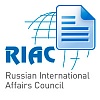Carole Nakhle: There is a lot of politics around South Stream
In
Login if you are already registered
(no votes) |
(0 votes) |
In June 2014 Bulgaria and Serbia announced the suspension of works on the South Stream pipeline. What is the fate of the South stream pipeline in such a situation? Will Bulgaria and Serbia bring economic damage? How does European Commission evaluate the situation on the South Stream pipeline? Dr. Carole Nakhle, Energy Economist, Surrey Energy Economics Centre and Fellow, Carnegie Middle East Centre, offer her views here.
There is a lot of politics surrounding the construction of the new pipelines to Europe especially those bringing Russian gas and which would increase Europe's dependence on Russia — an undesirable outcome for many Europeans and a view also strongly supported across the Atlantic.
Currently, several pipeline options are being considered, as part of the Southern gas corridor which is described by the European Commission as one of the EU’s highest energy security priorities. However, given the Nabucco experience, the economics of these pipelines , the interests of the countries through which they would pass, and the companies involved will determine which projects will materialize.
South Stream was called “the Nabucco killer” and seen by many as strengthening Russia's grip on the European market. Also, according to the EU, the project violates European legislation with respect to competition.
Countries like Bulgaria currently don't feel they are in a position that is strong enough to challenge the authority of EU institutions.
It has to be remembered that Russia, as a major supplier, needs customers. It always has and always will.
EU gas imports from 1995 to 2012
Source: European Commission, 2013
See more: How Europe freed itself from relying on Russian gas
Interviewer: RIAC Coordinator Tatiana Bogdasarova.
(no votes) |
(0 votes) |




